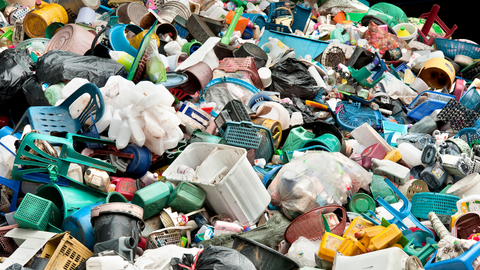My shopping cart
Your cart is currently empty.
Continue Shopping
Plastic has revolutionized the world we live in. It has transformed the medical, tourism, food, hospitality and pretty much every single industry. Light weight cars make use of trendy varieties of plastic to get the spare parts designed. Jumbo aircrafts are designed using plastic aiming at saving fuel and pollution. Think of clingy, light-as-air wraps to enhance the shelf life of fresh food. Airbags, incubators, mineral water containers, and helmets, you name it, plastic is in it. Though plastic has been highly beneficial to us humans, its rampant and wide-spread use has created environmental degradation on a massive scale.
Low-cost and light weight plastic are highly resilient and durable but the excessive usage of same leaks into nature. Here it negatively impacts wildlife, oceans, rivers, and humans. Eco-systems are irreversibly damaged on account of the excessive use of the same. Let us delve deeper into why and how this happens.
Types of plastic
Basically, you can differentiate plastic into two major types. These are:
Macro-plastics design polythene bags, cigarette filters, bottles, containers, clothes, and Straws. Invariably, these materials are use and throw. Hence, macro plastic components can pollute or litter the surroundings around us. While micro-plastics are the bits smaller than 1/5th of an inch.
Check out our Instagram Live discussion with Sruti Harihara Subramaniam, founder of Goli Soda and you'll see how simple it can be to take steps to move towards a Plastic Free lifestyle. It's clearly an ongoing process, but what's important is we continuously take steps towards it.
View this post on InstagramA post shared by Vvegano - Vegan marketplace (@vveganostore) on
Why is plastic degrading the environment we live in?
The key issue you need to primarily understand is this - Plastics are designed using synthetic chemicals in proportions barely known to us. This means, plastic is a material that rarely undergoes decay. A simple plastic fork takes 450 years or more to completely decompose.
Facts pertaining to the negative impact of plastics
You can therefore imagine the amount of natural resources we utilize to create tons of plastic.
Facts pertaining to wastage of plastic
When you talk about utilization of plastic for deriving high quality products, should not we consider how much of plastic wastes are dumped across landfills and oceans. Here, we let you know about the statistics.
Statistics over-viewing the long-term effects or consequences behind reckless usage of plastic products
Can human health get impacted too?
Yes, humans can also get impacted when they regularly ingest plastic via seafood, snacks, bottled drinks, etc. But the quantum of plastic particles that can cause severe or irreversible damages to the body is yet to be ascertained. Salt, fish, honey, and beer are also laced with finer micro-plastic granules. As you had seen the impact of plastic materials or wastes dumped into oceans and rivers, you cannot undermine the huge amount of plastic materials sea-creatures consume. As so many people consume seafood, these plastic materials can invariably reach their gut.
Overall, plastic is useful to our kind as they provide durability or storage capacities. Whereas microplastic remains the breeding ground to take in toxins or other pollutants we have spilled into the natural world. Hence, organic materials, pharmaceuticals and pesticides that reach oceans get into micro plastic’s crust as tiny materials. These, when they enter your body can cause potential damage to your hormone systems.
There are people, who are in constant contact, dealing in plastic materials of various kinds. Say for instance, ragpickers from Bangladesh collect dry plastic materials and sell them for money. You have people working in plastic recycling industry that melt plastic to create small pellets. The consequences micro and macro plastics have on them is hazardous.
Conclusion
We have seen end to end aspects on how plastic acts as a boon as well as a bane. When you use plastic in moderation and replace your cups or straws with bio-degradable materials, you can expect a cleaner and a greener Earth. Recycling plastic wastes should be made mandatory. Those who dump plastic wastes into oceans or rivers must be fined heavily. In the end, our Future is in our own hands, and each one of us can make a difference. Let's aim to go Plastic-Free and if we aren't there yet, then lets start taking those steps.
Blog ideas inspired from: https://impacthub.net/plastic-the-problem-and-its-impact
We are an online vegan store based out of India. We have personalized lifestyle products catering to people belonging to the present millennium. You get nut butters, mock meats, plant-based sweets, dairy-free alternatives, groceries and wellness care products from our store. Do check out some of our outstanding collections right here:
For more, log in to https://www.vvegano.com